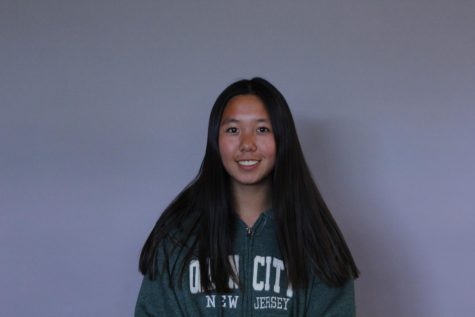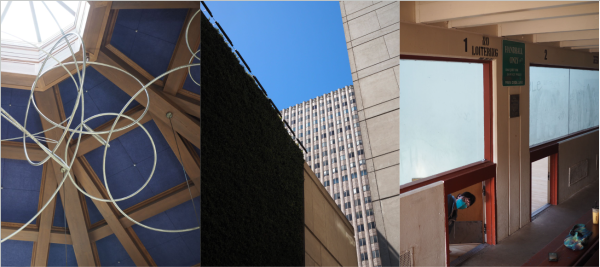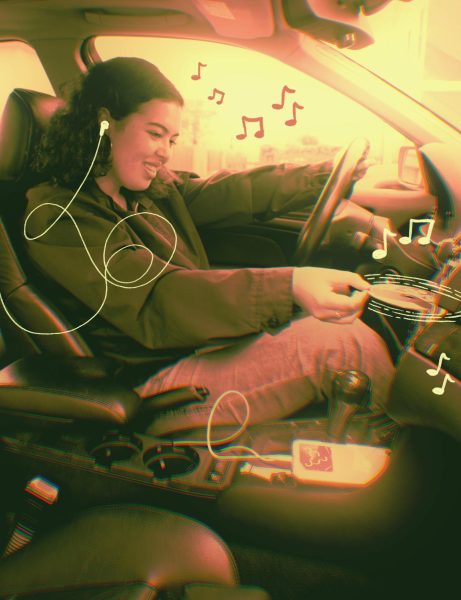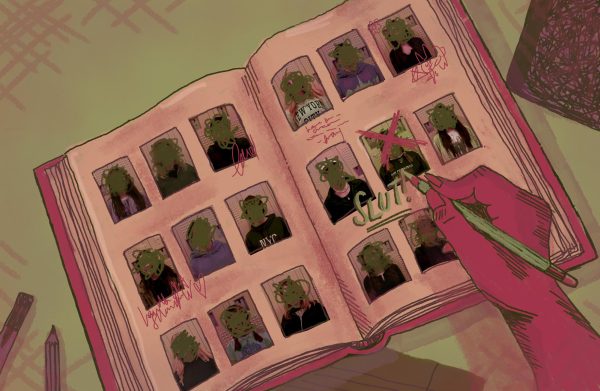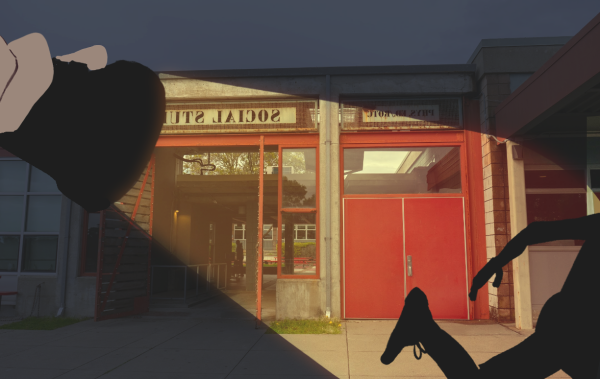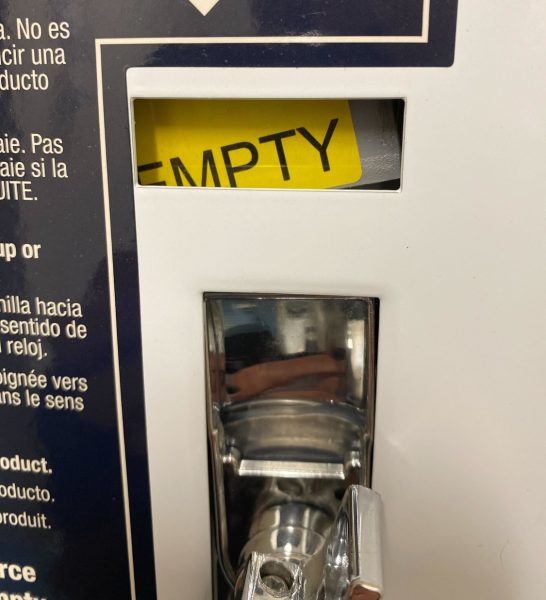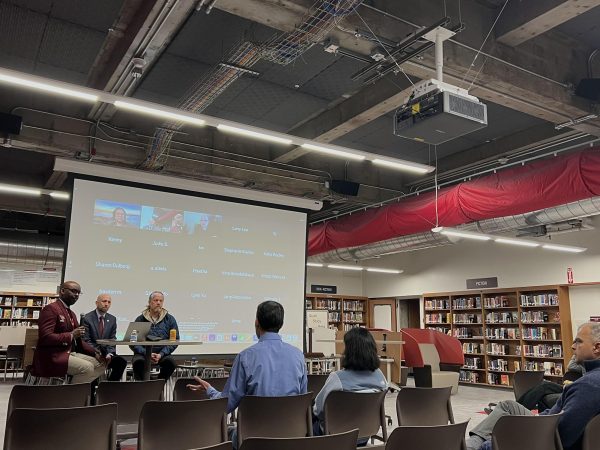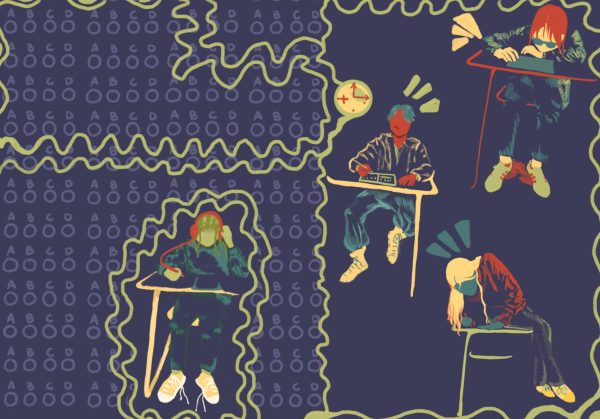District representatives came to hear student demands. Will they take action?
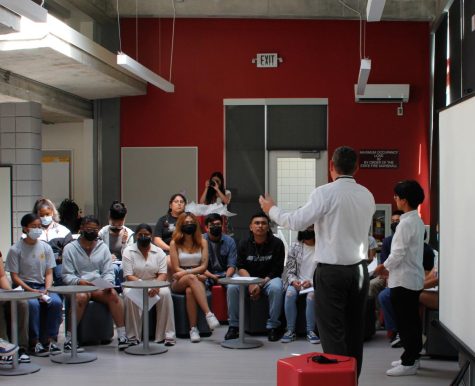
On Wednesday, Sept. 7, student representatives from several Lowell clubs and organizations spoke to San Francisco Unified School District (SFUSD) and San Francisco politicians regarding their demands and hopes for change on Lowell’s campus. During the 2020-2021 school year, some students felt there was a lack of transparency and communication between students and SFUSD representatives. After the visit on Sept. 7, some students feel that this school year will be a duplicate of the last, others wonder if change will be implemented, and the remainder of students are hopeful and feel their voices were taken into account.
According to SFUSD Superintendent Matt Wayne, the purpose of his visit to Lowell was to hear directly from student voices about their experiences and in what ways he can support Lowell. In addition to the Superintendent, Lowell was visited by members of the Board of Education, the San Francisco Board of Supervisors, and other SFUSD and city representatives. The students represented SBC, LSA, Latinos Unidos, Jew Crew, BSU, Best Buddies, Fil-Am Club, Gay Straight Alliance, and Polynesian Club.
Students felt inclined to make their voices heard, because they wanted to see more support for all students, but especially students of color and who identify as LGBTQIA+. “It felt important to speak up on issues that a lot of us POC are facing here at Lowell,” Isaak Tejada, Co-President of Latinos Unidos, said. Similarly, Sophia Gonzalez, President of the Gay Striaght Alliance (GSA), wanted to advocate for more inclusivity and support for queer students. “Queer voices are so often dismissed, and I saw this as an opportunity to speak up about my personal experiences at Lowell and how we, as a school and district, can work to create a more accepting and supportive environment,” Gonzalez said.
We want our student voice in concrete policies, and we want to be able to be a part of creating any change that happens on campus — Nai Gauthier
Students stood up one by one to talk about their experiences and demands for change. Many cultural clubs voiced their demands about preventing racism. “We want our student voice in concrete policies, and we want to be able to be a part of creating any change that happens on campus,” Nai Gauthier, President of BSU, said. “We want a zero tolerance policy on racism, and we want to also address racism at Lowell because it has existed for many years, and it hasn’t disappeared.” Azalea Sanchez, a representative of Best Buddies, a club that creates a more inclusive environment for students with intellectual and developmental disabilities, spoke on exclusion and ways to reverse it. “I feel like students just keep getting more alienated,” Sanchez said. “We should be including them and talking about [students with disabilities] in the curriculum, since it isn’t really seen.” Co-presidents of Latinos Unidos, Aaliyah Español-Rivas, who is also an editor on The Lowell, and Tejada, wanted to see more Lowell site visits from SFUSD representatives, more support programs for BIPOC students, and the use of trigger warnings when graphic content is shown in the classroom. Lexi Klionsky, president of Jew Crew, explained how she had two topics she wanted the SFUSD and city representatives to hear, including the lack of acknowledgement for Jewish holidays and antisemitism among the Lowell community. “One motivation was that we don’t get school off for Jewish holidays, which has definitely stopped me and others from attending temple services during some of the most important holidays,” Klionsky said. “My second was the fact that antisemitism is still embedded in a lot of comments made in classrooms and it is important to acknowledge them.”
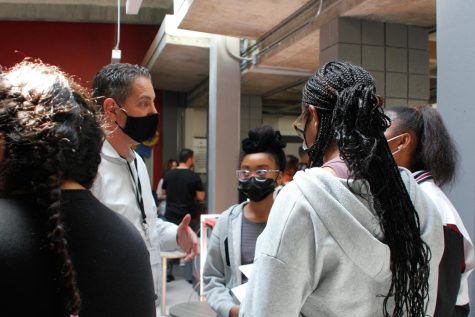
Following the student presentations, each SFUSD and city representative had the opportunity to have one-on-one conversations with individual students. Klionsky was able to express how antisemitic comments by teachers affected her and her peers. “I talked to someone on the board about classrooms and comments made by teachers and she acknowledged and promised to try and change it,” she said. After talking to Davina Goldwasser, the Interim Assistant Superintendent of High Schools, Gauthier was left feeling hopeful. “She was very willing to listen and wanted to understand the context of everything that has happened,” she said. “She gave us her contact information to reach out to her if we ever had any concerns, which was nice.”
After the one-on-one conversations between students and the SFUSD and city representatives, the representatives each addressed all the students and mentioned one thing that stood out to them. Eric Guthertz, the Director of Principal Leadership and Support for SFUSD High Schools, reflected on his conversation with Gonzalez and emphasized how inclusivity should be a priority across campus. “We need to learn from each other with teachers, students, and administration, side by side, to actually make some real shifts in the culture so that we can be more deeply equity centered and inclusive,” Guthertz said. “Particularly for queer students, but really for all students.” For Gordon Mar, a member of the San Francisco Board of Supervisors, this was the first time he’d heard directly from students. “I heard, loud and clear, that students want more voice and a seat at the table for decisions and I support that,” Mar said. Going forward, he wants to have consistent communication with students and SFUSD leaders. “I would like to follow up directly with student leaders and student groups at Lowell and to be in more regular communication with Principal Jones, the administration, school board members, and leaders,” Mar said.
We need to learn from each other with teachers, students, and administration, side by side, to actually make some real shifts in the culture so that we can be more deeply equity centered and inclusive
— Eric Guthertz
Despite hearing the SFUSD and city representatives’ positive words and coming plans, some students do not feel that changes will be made. “They’re just trying to satisfy us, but we know it’s empty promises. They say, ‘We’re gonna change,’ but they’ve been saying that,” Javier Tinsay-Marquez, Vice President of Fil-Am, said. He believes that the lack of action from the SFUSD representatives in the past will be once again evident going forward. “We don’t think they care very much,” Tinsay-Marquez said. “I don’t think they’re actually gonna do what we want them to do, they’re not gonna listen to us.”
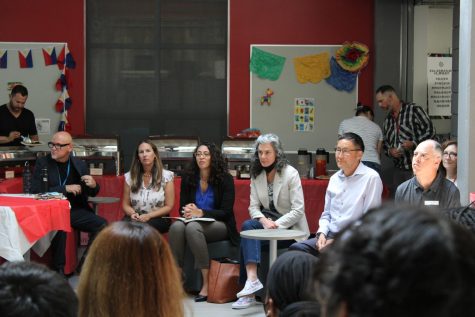
Superintendent Matt Wayne acknowledged that students feel there is a lack of support from SFUSD and Lowell administration, but hopes that this will change. “It’s known there are issues but it doesn’t sound like students have confidence that we’re doing anything about it,” Wayne said. He felt what stood out most from the student representatives’ presentation was that communication between students and SFUSD representatives needs to be improved. “If we’re gonna say we’re student-centered, it means more than just having this conversation. We need to show students how we’re following up on their ideas,” Wayne said. “This doesn’t mean doing everything students say, but really increasing communication and transparency.”
Several students feel hopeful about Superintendent Wayne’s words and hope to see change soon. “It felt like he was truly listening to us. He later told us that he will be coming back to check in later in the spring, and that this would not be the last board event held at Lowell,” Gonzalez said. “Overall, I think the event went extremely well and left me feeling hopeful.” Other students appreciate the positivity, but are eager to see SFUSD representatives act upon their words. “I liked how he recited his main goals of how he was going to fix the issues at Lowell,” Klionsky said. “His optimism was nice, but we will see if he follows through.” Gauthier agreed. “I feel hopeful. I’m not 100 percent convinced that change will be made based on the history at Lowell and the district,” she said. “I’d like to acknowledge that he seems willing to listen and actually act on change.”
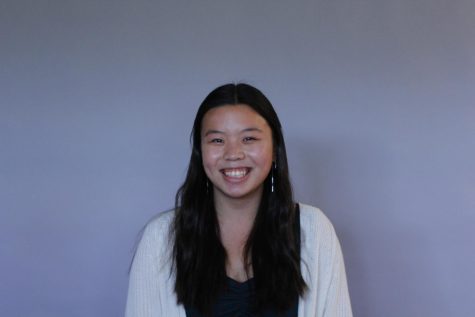
Kelcie is a senior at Lowell who can be found in the journ room working, drinking coffee, and listening to music. Her older brother once mentioned that there are only three guarantees in life: death, taxes, and Kelcie not waking up to her alarms. She also happens to have a paradoxical relationship with chicken… go figure.
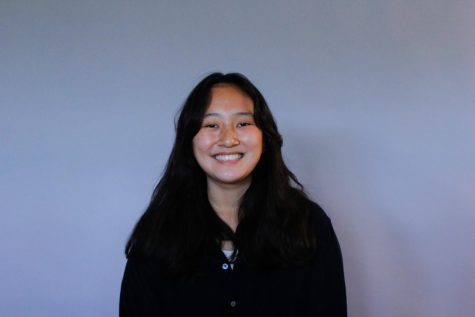
Yeshi (yEEshi) is a senior at Lowell that loves the school breakfast bagels a little too much. After school hours, you can find her at the beach or in the park daydreaming about almost anything and everything.


